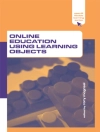Understanding Family Support provides a definition of family support and a clear perspective on the role that it has in promoting the welfare of children and their families.
Family support is a concept that has been used in a range of ways to describe various aspects of child welfare policy and practice. The authors argue that this weakens family support as an overarching child welfare paradigm. They present a unifying definition of family support along with ten principles and a series of reflective practice questions applicable to: legislation and policy; organisation, management and planning; direct work with children and families; and research and evaluation.
This is an important resource for any professional engaged in policy development, service design, delivering or evaluation of family support, including social workers, residential care staff, community development workers, teachers, community police, human services managers, evaluators and policy makers.
Despre autor
John Canavan is Associate Director of the UNESCO Child and Family Research Centre, a research and policy centre for which Family Support is a major area of interest. He has over 20 years’ experience in undertaking project evaluations and providing policy advice to statutory and voluntary agencies, and to government. Over the last seven years he has led a series of major evaluations on a programme of investment in children’s services in Ireland. He teaches on the post qualifying Diploma/MA in Family Support Studies at the National University of Ireland, Galway and co-directs the Structured Ph.D. in Child and Youth Research at the university. His academic writing covers Family Support and related topics, and Evidence Informed Practice.












